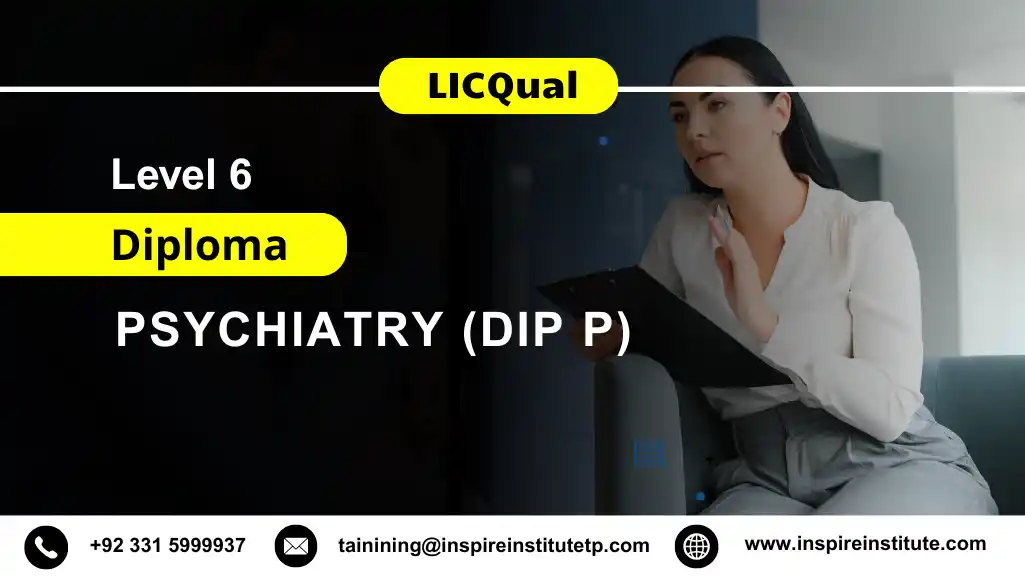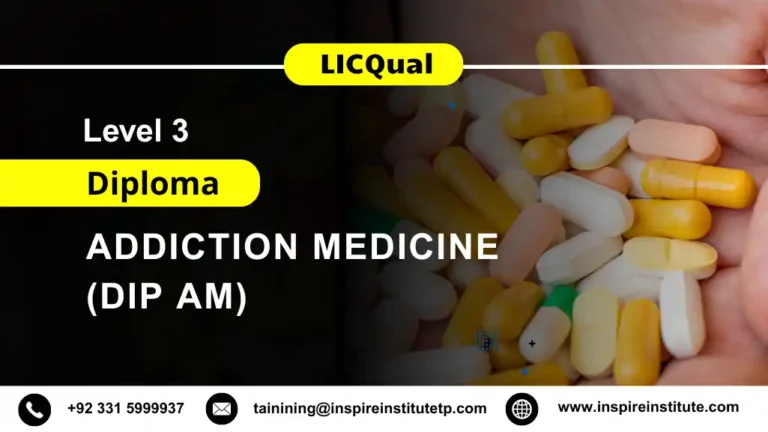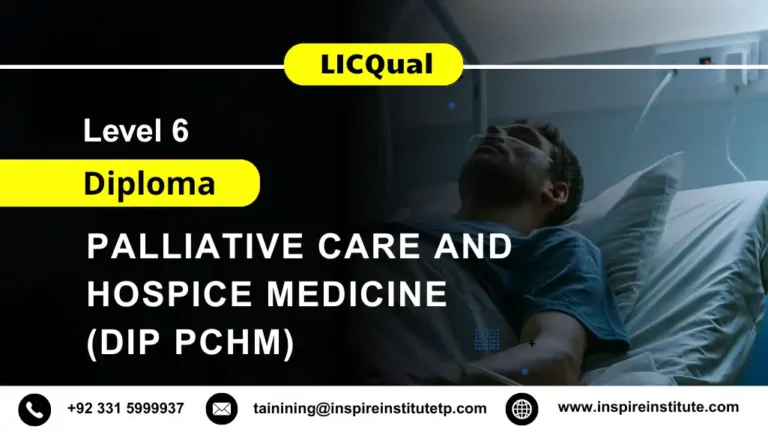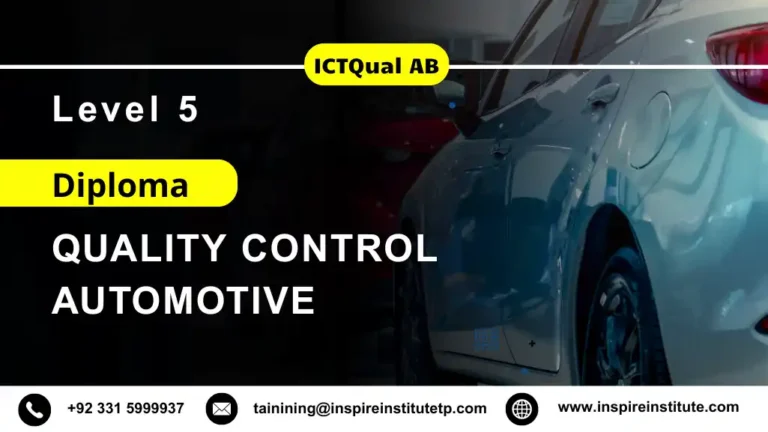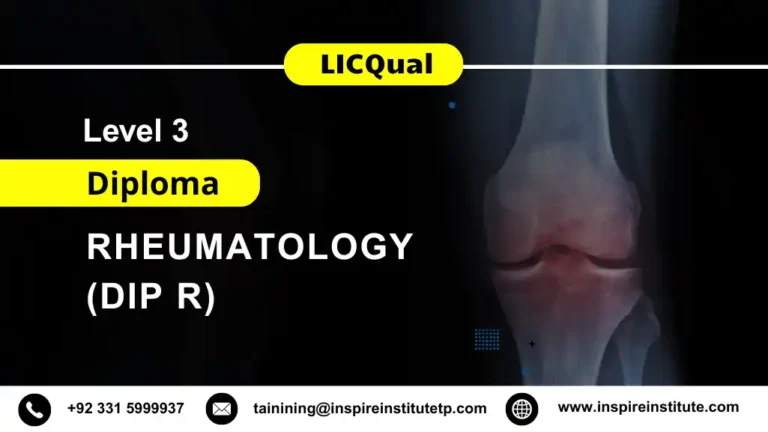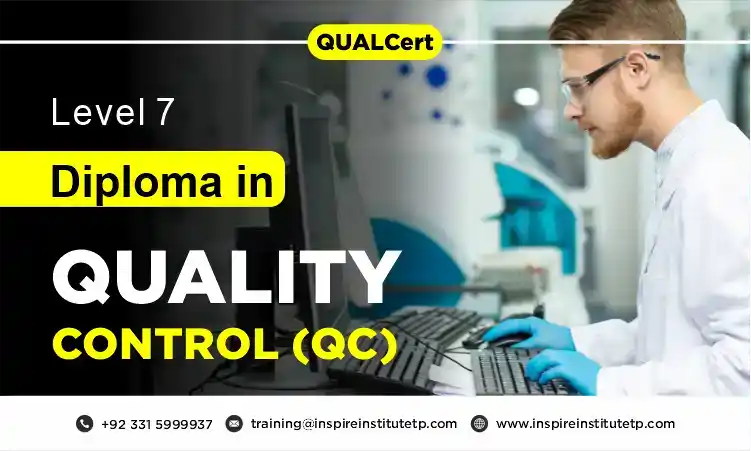LICQual Level 6 Diploma in Psychiatry (Dip P)
The LICQual Level 6 Diploma in Psychiatry (Dip P) is a prestigious UK-accredited qualification designed for healthcare professionals and mental health practitioners seeking to advance their expertise in the field of psychiatry and psychological medicine. In today’s world, where mental health awareness is rapidly growing, this advanced diploma provides learners with the theoretical understanding and clinical competencies needed to assess, diagnose, and manage a wide range of psychiatric conditions effectively.
This psychiatry diploma course offers an in-depth exploration of mental disorders, neurobiological mechanisms, therapeutic interventions, and psychosocial treatment approaches. Learners gain insight into various branches of psychiatry, including clinical psychiatry, child and adolescent psychiatry, forensic psychiatry, and community mental health. Through comprehensive study materials and practical assignments, the program ensures that participants develop both academic excellence and professional confidence in managing complex mental health cases.
The LICQual Level 6 Diploma in Psychiatry emphasizes evidence-based practice, ethical professionalism, and patient-centered care. It equips learners with advanced diagnostic skills using standardized psychiatric assessment tools and enhances their ability to formulate treatment plans that integrate pharmacological, psychotherapeutic, and rehabilitative methods. This holistic approach prepares graduates to work effectively within multidisciplinary mental health teams.
Why Choose this Qualification
The LICQual Level 6 Diploma in Psychiatry (Dip P) is a comprehensive and internationally recognized qualification designed for healthcare professionals who aspire to excel in the field of psychiatry and mental health care. This advanced, assignment-based diploma combines theoretical insight with clinical application, empowering learners to assess, diagnose, and manage a wide range of psychological and behavioral disorders. By offering evidence-based knowledge and practical training, this qualification equips professionals to contribute effectively to improving mental health outcomes and advancing their careers in psychiatric practice.
Key Reasons to Choose this Qualification
1. Globally Recognized and UK-Accredited Qualification
- Awarded by LICQual (UK), ensuring adherence to international healthcare and educational standards.
- Recognized worldwide, enhancing professional credibility and employability in psychiatric and healthcare settings.
- Meets measurable academic and clinical benchmarks established by global mental health authorities.
- Validates advanced psychiatric competencies through UK-accredited certification.
- Opens career opportunities in hospitals, clinics, universities, and mental health organizations globally.
2. Comprehensive Understanding of Psychiatry and Mental Health
- Covers the fundamentals and advanced principles of psychiatric medicine and mental health sciences.
- Focuses on understanding psychological disorders, neurochemical mechanisms, and behavioral patterns.
- Provides in-depth study of conditions such as anxiety, depression, schizophrenia, bipolar disorder, and addiction.
- Integrates biological, psychological, and social perspectives for holistic understanding.
- Equips learners with theoretical and clinical frameworks for modern psychiatric assessment.
3. Strong Emphasis on Clinical Application and Diagnostic Skills
- Develops competence in identifying and managing complex psychiatric conditions.
- Trains learners to apply diagnostic tools such as DSM-5 and ICD-10 classifications in clinical settings.
- Strengthens skills in formulating personalized treatment and rehabilitation plans.
- Encourages the use of evidence-based therapeutic approaches in psychiatric care.
- Ensures that learners gain practical and measurable experience in mental health assessment.
4. Focus on Research and Evidence-Based Practice
- Promotes the integration of current research findings into psychiatric decision-making.
- Encourages critical evaluation of existing treatment models and psychiatric methodologies.
- Provides learners with research literacy to interpret clinical studies and apply evidence to practice.
- Enhances analytical and problem-solving skills essential for advancing mental health science.
- Supports innovation in treatment strategies for diverse patient populations.
5. Development of Professional and Therapeutic Communication Skills
- Enhances ability to communicate effectively with patients, families, and interdisciplinary teams.
- Builds empathy, cultural sensitivity, and professionalism in patient interactions.
- Improves case documentation and report-writing skills aligned with clinical standards.
- Strengthens interpersonal competence crucial for psychiatric counseling and therapy.
- Fosters therapeutic alliances that promote trust, compliance, and recovery outcomes.
6. Flexible and Accessible Learning Structure
- Delivered through a flexible, assignment-based format ideal for working professionals.
- Allows learners to balance professional duties with academic progression.
- Provides tutor support, digital resources, and structured study materials for self-paced learning.
- Ensures consistent progress tracking through assignments and academic assessments.
- Enables learners to apply acquired knowledge directly to real-world clinical practice.
7. Pathway to Career Progression and Further Studies
- Serves as a stepping stone to postgraduate or doctoral-level qualifications in psychiatry or psychology.
- Expands professional opportunities in clinical psychiatry, research, and academic teaching.
- Strengthens eligibility for senior roles such as Consultant Psychiatrist, Clinical Psychologist, or Mental Health Specialist.
- Builds a strong academic foundation for leadership and policy development in mental health care.
- Provides measurable outcomes that support global career advancement in psychiatry.
8. Commitment to Ethical, Patient-Centered, and Holistic Care
- Instills the importance of ethical decision-making and patient confidentiality in psychiatric practice.
- Encourages a holistic approach that considers biological, psychological, and social determinants of health.
- Prepares learners to manage complex ethical dilemmas in mental health treatment.
- Promotes advocacy for mental health awareness and destigmatization in society.
- Reinforces professionalism, compassion, and integrity in all aspects of psychiatric care.
The LICQual Level 6 Diploma in Psychiatry (Dip P) provides healthcare professionals with a robust framework to master the science and practice of modern psychiatry. Through its blend of academic rigor, clinical relevance, and professional development, this qualification equips learners to make meaningful contributions to global mental health. Whether pursuing clinical excellence, research innovation, or academic leadership, this diploma serves as a valuable pathway toward achieving professional recognition and advancing psychiatric practice worldwide.
Course Overview
LICQual UK Awarding Body
Average Completion Time:
6-24 Months
Study Units: 6 Units
Evidence & Assignment Based
Mandatory Units
Who Should Take This Course
The LICQual Level 6 Diploma in Psychiatry (Dip P) is designed for healthcare professionals who aspire to deepen their understanding of mental health science, diagnostic methods, and therapeutic interventions. This UK-accredited qualification offers a blend of theoretical foundations and practical applications, empowering learners to deliver effective, evidence-based psychiatric care. Whether you are a practicing clinician, a healthcare manager, or an aspiring mental health specialist, this course provides the advanced competencies needed to thrive in modern psychiatric and psychological practice.
This Course is Suitable For
1. Licensed Medical Practitioners and General Physicians
- Ideal for doctors who wish to broaden their clinical expertise in mental health and behavioral sciences.
- Enables practitioners to accurately identify and manage psychiatric symptoms in general healthcare settings.
- Provides advanced diagnostic and treatment-planning skills aligned with global psychiatric standards.
- Equips physicians to integrate mental health care into holistic patient management.
- Strengthens competency in recognizing psychological components of physical illnesses.
2. Psychologists and Mental Health Professionals
- Designed for professionals aiming to expand their expertise in psychiatry alongside psychology.
- Offers insight into neurobiological, pharmacological, and psychosocial aspects of mental disorders.
- Enhances ability to collaborate effectively with psychiatrists, counselors, and healthcare teams.
- Builds advanced knowledge of psychopharmacology, therapy planning, and behavioral assessment.
- Promotes measurable improvement in diagnostic accuracy and therapeutic intervention strategies.
3. Nurses and Mental Health Practitioners
- Suitable for registered nurses specializing in psychiatric, community, or general healthcare.
- Develops practical skills in patient assessment, therapeutic communication, and medication management.
- Strengthens understanding of patient-centered care models for individuals with mental health needs.
- Encourages leadership in clinical practice, care coordination, and mental health education.
- Fosters multidisciplinary collaboration in psychiatric and holistic health settings.
4. Social Workers and Counsellors
- Ideal for professionals engaged in social care, crisis intervention, and community mental health support.
- Expands understanding of the psychiatric basis of behavior, addiction, and emotional distress.
- Provides skills to assess mental health needs and refer clients for specialized psychiatric care.
- Encourages application of psychosocial theories to real-world social service contexts.
- Enhances empathy, ethical awareness, and intervention planning in community-based care.
5. Healthcare Administrators and Policy Makers
- Beneficial for individuals involved in healthcare management, planning, and policy development.
- Provides in-depth understanding of the psychiatric healthcare system and service delivery models.
- Equips learners to design and manage effective mental health programs and public health initiatives.
- Encourages data-driven decision-making and evaluation of mental health service quality.
- Strengthens leadership and advocacy skills to promote mental health awareness and reform.
6. Academic Professionals and Researchers
- Perfect for lecturers, tutors, or researchers seeking to advance their qualifications in psychiatry.
- Supports academic excellence through critical engagement with modern psychiatric theories and evidence.
- Encourages contribution to psychiatric literature, research innovation, and publication.
- Provides measurable skills in data analysis, ethical research design, and scholarly writing.
- Promotes collaboration with global academic and clinical research networks.
7. Students Aspiring to Specialize in Psychiatry or Clinical Psychology
- Designed for learners pursuing advanced studies in psychiatry, psychology, or mental health sciences.
- Builds a strong foundation in psychiatric diagnostics, treatment planning, and clinical evaluation.
- Enhances readiness for postgraduate education, residency programs, or doctoral-level research.
- Encourages professional growth through structured assignments and guided academic support.
- Prepares students for diverse roles across clinical, research, and community mental health sectors.
8. International Healthcare Professionals Seeking UK-Accredited Credentials
- Tailored for international practitioners aiming to gain a globally recognized psychiatric qualification.
- Strengthens understanding of UK and international mental health standards and ethical guidelines.
- Enables learners to meet global employability requirements in psychiatry and mental health care.
- Supports cross-cultural competence and global perspectives in psychiatric treatment.
- Provides measurable enhancement of professional credibility and clinical practice skills.
The LICQual Level 6 Diploma in Psychiatry (Dip P) is ideally suited for a wide range of healthcare and mental health professionals seeking to enhance their expertise, clinical judgment, and career progression in psychiatry. By combining theoretical depth with practical relevance, this qualification prepares learners to deliver compassionate, evidence-based care and to contribute meaningfully to the advancement of mental health on both national and global levels.
Course Benefits
The LICQual Level 6 Diploma in Psychiatry (Dip P) is a UK-accredited qualification designed for healthcare professionals and aspiring mental health specialists who wish to advance their knowledge and clinical competencies in the field of psychiatry. This comprehensive, assignment-based diploma integrates advanced theoretical understanding with practical applications, enabling learners to diagnose, manage, and treat a wide range of mental health disorders with confidence and compassion. Through a balance of evidence-based learning and flexible study pathways, this qualification prepares professionals to meet the growing global demand for skilled psychiatric practitioners.
Key Benefits of the Course
- Specialist Knowledge:
Gain an in-depth understanding of psychiatric theory, mental health disorders, neurobiology, and behavioral sciences. Learners explore critical topics such as mood disorders, psychotic illnesses, anxiety conditions, addiction, and personality disorders. The course also covers psychiatric assessment methods, psychopharmacology, and therapeutic interventions, empowering learners to deliver effective, patient-centered mental health care. - Practical Application:
Develop hands-on competence in psychiatric assessment, treatment planning, and therapeutic management. Through real-world case studies and clinical simulations, learners enhance their ability to apply diagnostic frameworks such as DSM-5 and ICD-10. The program trains professionals to conduct patient evaluations, provide evidence-based interventions, and collaborate effectively with multidisciplinary healthcare teams to ensure holistic mental health support. - Recognised Qualification:
Earn a prestigious UK-accredited diploma that validates your expertise in psychiatry and mental health care. The LICQual Level 6 Diploma in Psychiatry (Dip P) is recognized internationally, ensuring learners meet global healthcare standards. This qualification strengthens professional credibility and opens doors to career advancement in clinical, academic, and research-based roles. - Flexible Learning Pathway:
Designed with working professionals in mind, the assignment-based structure of this program offers flexible study options without disrupting ongoing clinical responsibilities. Learners can progress at their own pace, supported by structured academic guidance, digital resources, and personalized mentorship, allowing for a seamless balance between education and professional practice. - Evidence-Based Training:
Explore the latest research, psychiatric models, and clinical guidelines that underpin modern mental healthcare. The course emphasizes the use of evidence-based strategies in diagnosis, medication management, and psychotherapy. Learners are trained to evaluate scientific literature critically and incorporate validated clinical practices that promote safe and effective patient outcomes. - Career Development:
This qualification expands professional opportunities across hospitals, community clinics, mental health centers, and academic institutions. Graduates may pursue roles such as Psychiatric Practitioner, Mental Health Specialist, Clinical Researcher, or Lecturer in Psychiatry. The diploma also serves as a foundation for advanced postgraduate studies or specialization in psychiatry and related disciplines. - Enhanced Patient Care:
Learn to deliver compassionate, ethical, and culturally sensitive psychiatric care. The program builds expertise in managing complex mental health cases, fostering therapeutic relationships, and improving patient recovery outcomes. Learners are equipped to address the emotional, social, and biological aspects of mental illness, contributing to comprehensive patient well-being. - Professional Growth:
Strengthen critical thinking, clinical judgment, and communication skills essential for success in psychiatric practice. The diploma encourages leadership, reflective learning, and interdisciplinary collaboration. Graduates emerge as confident, well-rounded professionals capable of advancing global standards in mental health care and psychiatry.
The LICQual Level 6 Diploma in Psychiatry (Dip P) empowers healthcare professionals to become leaders in mental health management through advanced psychiatric knowledge, clinical expertise, and globally recognized credentials. It not only enhances professional credibility but also contributes significantly to the improvement of mental health services and patient outcomes worldwide.
Eligibility Criteria
The LICQual Level 6 Diploma in Psychiatry (Dip P) is a UK-accredited qualification designed for healthcare professionals, psychologists, and mental health practitioners who aspire to deepen their knowledge and clinical expertise in the field of psychiatry. This assignment-based diploma integrates theoretical foundations with practical applications, preparing learners to assess, diagnose, and manage a wide range of mental health conditions effectively. Meeting the entry requirements ensures that learners are academically and professionally equipped to succeed in this advanced mental health programme and apply their learning within diverse clinical and academic settings.
Educational Background:
Applicants should hold a recognised qualification in medicine, nursing, psychology, or a related healthcare field. A Level 5 diploma or equivalent qualification in mental health studies, counselling, or healthcare management may also be accepted. Candidates with international degrees in psychiatry or clinical psychology will be evaluated individually to determine eligibility and equivalence to UK standards.
Professional Experience:
A minimum of one year of experience in healthcare, clinical psychology, psychiatry, or a related mental health setting is recommended. Previous exposure to psychiatric assessment, counselling, or patient care provides an advantage. However, motivated applicants with a strong interest in mental health and emotional well-being, even without direct psychiatric experience, are encouraged to apply.
Age Requirement:
Applicants must be at least 18 years old at the time of enrolment. This ensures that learners possess the maturity, ethical understanding, and clinical responsibility required for advanced psychiatric study and practice.
Language Proficiency:
As the programme is delivered entirely in English, learners must demonstrate proficiency in reading, writing, and communication. A minimum IELTS score of 6.0 or an equivalent qualification is recommended for non-native English speakers to ensure effective participation in assignments, discussions, and assessments.
Technical Requirements:
Learners should have access to a computer or laptop with a reliable internet connection to participate in online learning, access study materials, and submit assignments. Basic computer literacy, including proficiency in research, document preparation, and communication tools, is essential for academic success in this programme.
Required Documents:
Applicants are required to submit the following documents during registration:
A valid ID card or passport for identity verification.
Academic transcripts or certificates of previous qualifications.
Proof of professional experience in psychiatry, psychology, or healthcare (if applicable).
Additional supporting documents may be requested for applicants with international or non-traditional qualifications to confirm eligibility.
The Qualification Process
LICQual Level 6 Diploma in Psychiatry (Dip P) follows a structured pathway to ensure learners gain comprehensive knowledge, practical skills, and professional competence in community oral healthcare.
Step 1: Self-Assessment
Learners review the entry requirements to confirm eligibility. Candidates with a background in dentistry, oral health, or public health are encouraged to apply.
Step 2: Registration
Complete the registration process by submitting required documents such as proof of qualifications, a valid ID, and payment of enrollment fees.
Step 3: Induction
An induction session is conducted to:
- Verify learner eligibility and documentation.
- Introduce study materials, learning outcomes, and assessment procedures.
Step 4: Learning and Evidence Submission
Learners complete assignments, case studies, and practical exercises demonstrating competence in public health dentistry, community oral health assessment, preventive strategies, and program planning.
Step 5: Feedback and Revision
Assessors review submitted evidence and provide constructive feedback. Learners can revise and resubmit work to meet all required standards.
Step 6: Competence Validation
Final submissions are evaluated to confirm that learners have met all theoretical and practical learning outcomes.
Step 7: Internal Quality Assurance (IQA)
The IQA team reviews the assessment process to ensure accuracy, fairness, and compliance with international standards.
Step 8: External Verification (EQA)
External verifiers validate the authenticity and quality of learner achievements.
Step 9: Certification
Upon successful verification, learners are awarded LICQual Level 6 Diploma in Psychiatry (Dip P), demonstrating advanced proficiency in community oral healthcare and preparing them for professional growth in dental public health, preventive dentistry, and healthcare policy.

